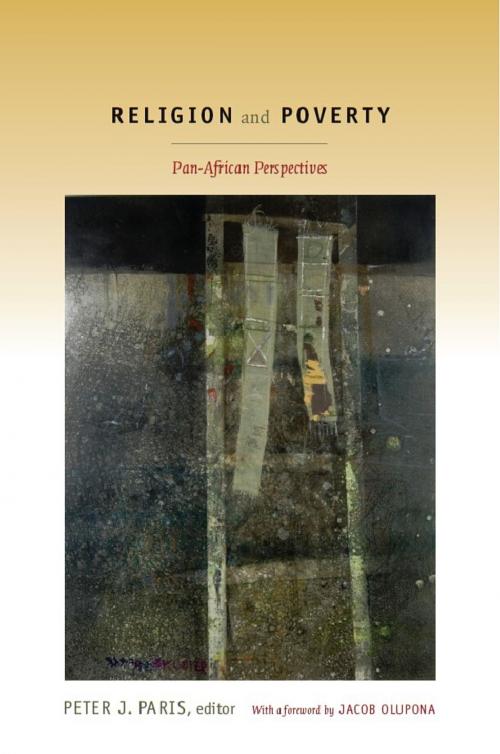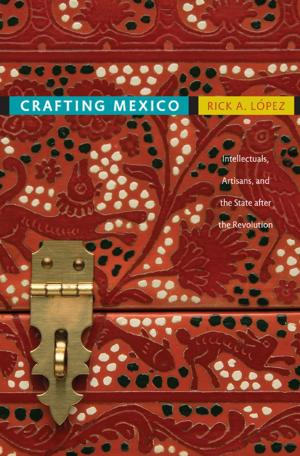Religion and Poverty
Pan-African Perspectives
Nonfiction, History, Africa, Religion & Spirituality, Theology, Christianity| Author: | Peter J. Paris, Jacob Olupona, Katie Geneva Cannon, Barbara Bailey, Takatso A. Mofokeng | ISBN: | 9780822392309 |
| Publisher: | Duke University Press | Publication: | November 25, 2009 |
| Imprint: | Duke University Press Books | Language: | English |
| Author: | Peter J. Paris, Jacob Olupona, Katie Geneva Cannon, Barbara Bailey, Takatso A. Mofokeng |
| ISBN: | 9780822392309 |
| Publisher: | Duke University Press |
| Publication: | November 25, 2009 |
| Imprint: | Duke University Press Books |
| Language: | English |
A Ghanaian scholar of religion argues that poverty is a particularly complex subject in traditional African cultures, where holistic worldviews unite life’s material and spiritual dimensions. A South African ethicist examines informal economies in Ghana, Jamaica, Kenya, and South Africa, looking at their ideological roots, social organization, and vulnerability to global capital. African American theologians offer ethnographic accounts of empowering religious rituals performed in churches in the United States, Jamaica, and South Africa. This important collection brings together these and other Pan-African perspectives on religion and poverty in Africa and the African diaspora.
Contributors from Africa and North America explore poverty’s roots and effects, the ways that experiences and understandings of deprivation are shaped by religion, and the capacity and limitations of religion as a means of alleviating poverty. As part of a collaborative project, the contributors visited Ghana, Kenya, and South Africa, as well as Jamaica and the United States. In each location, they met with clergy, scholars, government representatives, and NGO workers, and they examined how religious groups and community organizations address poverty. Their essays complement one another. Some focus on poverty, some on religion, others on their intersection, and still others on social change. A Jamaican scholar of gender studies decries the feminization of poverty, while a Nigerian ethicist and lawyer argues that the protection of human rights must factor into efforts to overcome poverty. A church historian from Togo examines the idea of poverty as a moral virtue and its repercussions in Africa, and a Tanzanian theologian and priest analyzes ujamaa, an African philosophy of community and social change. Taken together, the volume’s essays create a discourse of mutual understanding across linguistic, religious, ethnic, and national boundaries.
Contributors. Elizabeth Amoah, Kossi A. Ayedze, Barbara Bailey, Katie G. Cannon, Noel Erskine, Dwight N. Hopkins, Simeon O. Ilesanmi, Laurenti Magesa, Madipoane Masenya, Takatso A. Mofokeng, Esther M. Mombo, Nyambura J. Njoroge, Jacob Olupona, Peter J. Paris, Anthony B. Pinn, Linda E. Thomas, Lewin L. Williams
A Ghanaian scholar of religion argues that poverty is a particularly complex subject in traditional African cultures, where holistic worldviews unite life’s material and spiritual dimensions. A South African ethicist examines informal economies in Ghana, Jamaica, Kenya, and South Africa, looking at their ideological roots, social organization, and vulnerability to global capital. African American theologians offer ethnographic accounts of empowering religious rituals performed in churches in the United States, Jamaica, and South Africa. This important collection brings together these and other Pan-African perspectives on religion and poverty in Africa and the African diaspora.
Contributors from Africa and North America explore poverty’s roots and effects, the ways that experiences and understandings of deprivation are shaped by religion, and the capacity and limitations of religion as a means of alleviating poverty. As part of a collaborative project, the contributors visited Ghana, Kenya, and South Africa, as well as Jamaica and the United States. In each location, they met with clergy, scholars, government representatives, and NGO workers, and they examined how religious groups and community organizations address poverty. Their essays complement one another. Some focus on poverty, some on religion, others on their intersection, and still others on social change. A Jamaican scholar of gender studies decries the feminization of poverty, while a Nigerian ethicist and lawyer argues that the protection of human rights must factor into efforts to overcome poverty. A church historian from Togo examines the idea of poverty as a moral virtue and its repercussions in Africa, and a Tanzanian theologian and priest analyzes ujamaa, an African philosophy of community and social change. Taken together, the volume’s essays create a discourse of mutual understanding across linguistic, religious, ethnic, and national boundaries.
Contributors. Elizabeth Amoah, Kossi A. Ayedze, Barbara Bailey, Katie G. Cannon, Noel Erskine, Dwight N. Hopkins, Simeon O. Ilesanmi, Laurenti Magesa, Madipoane Masenya, Takatso A. Mofokeng, Esther M. Mombo, Nyambura J. Njoroge, Jacob Olupona, Peter J. Paris, Anthony B. Pinn, Linda E. Thomas, Lewin L. Williams















